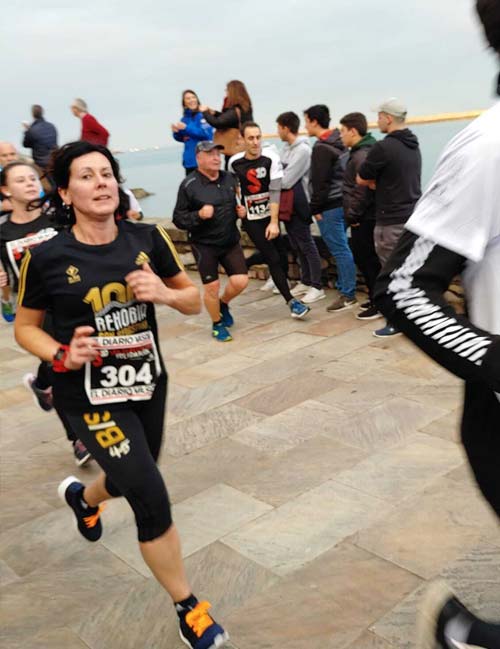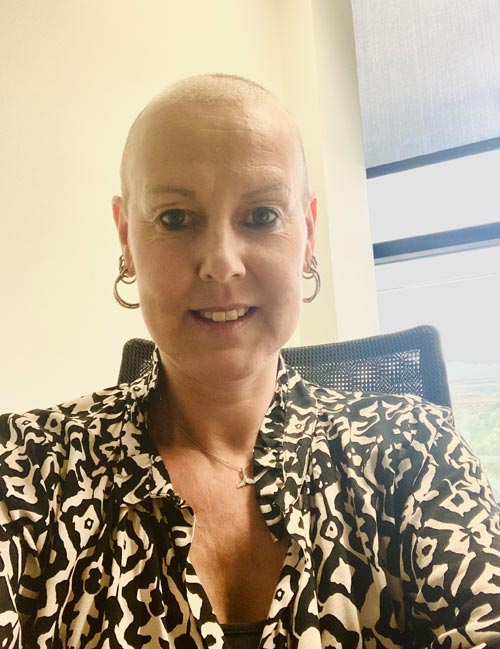Article de Kathrine Switzer: Lettre à Aran
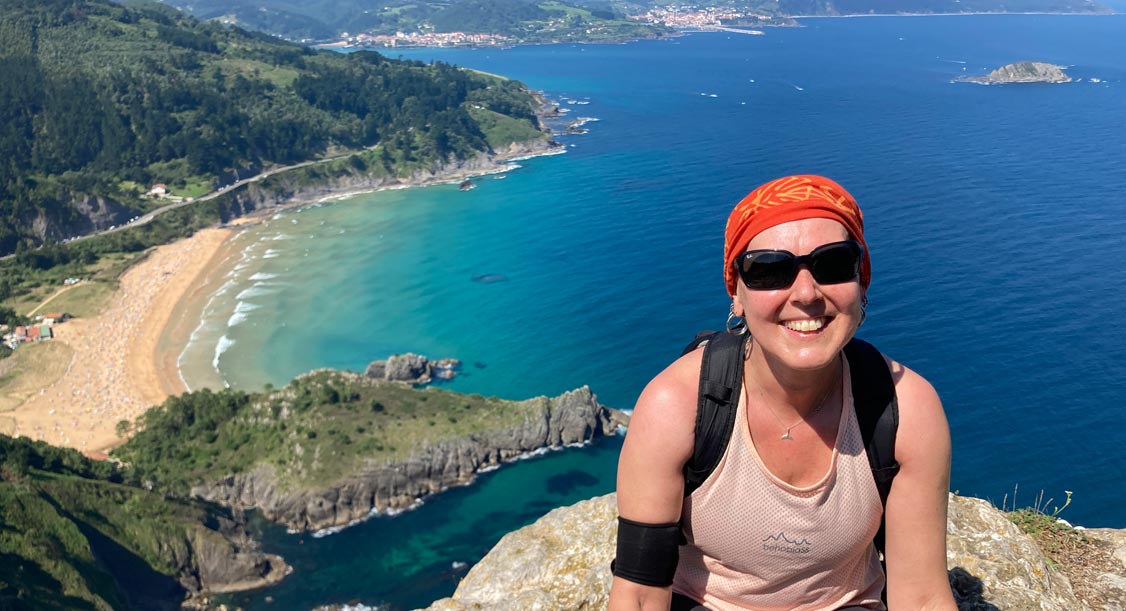
2021 is not an easy year for Arantza. After a year of pandemic, a month after her job changed, on March 5 she was given a diagnosis that no one wants to get: A breast cancer. A difficult setback that is facing with fortitude and the courage that characterizes her.
BSS 50/50/25 project
Arantza Rojo has been part of the family of the Fortuna Sports Club since 2002, where he has been responsible for Communication and Human Resources. Although he has recently changed his journey, he continues to work with the one that has been his home for the past two decades. Committed to gender equality, she leads the BSS 50/50/25 project that seeks to promote women's participation in sport. Thanks to this initiative she met a reference in this area: Kathrine Switzer.
The American woman was the first woman to run a marathon with a dorsal in 1967 in Boston and is a leading women's rights activist.
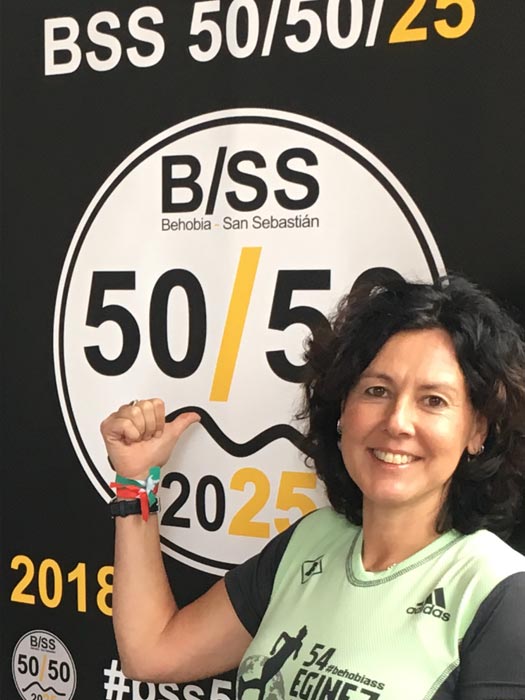
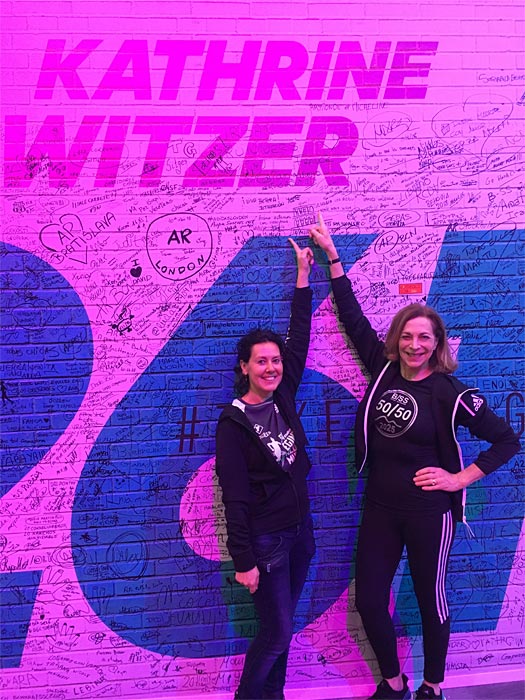
The letter
This common struggle forged a link between two brave women and fighters who offer support in other personal battles as well.
Switzer wanted to write this article and shares it with us all. She talks about women in difficult situations, the courage to overcome them, and how sports practice can help in that task.
Dear Aran,
As one athlete to another, and as one woman to another, I would like to talk to you about Courage.
Today I awoke to two pieces of startling news. One was the very bad news about the situation for women in Afghanistan. The other was the very good news about you having your final chemotherapy treatment for breast cancer on September 21.
I could not help but see the similarity in these two events: while the situation in Afghanistan is bad for everyone, for women it is particularly devastating. And, while cancer is bad for everyone, breast cancer for women is particularly devastating.
I would like to talk to you, Aran -a strong, feisty, determined, athletic woman—about courage. At the same time, I will speak for an Afghan woman friend of mine who is also athletic, determined, feisty and strong.
You have both shared a journey that started with hope—running well, getting support from a small community of like-minded athletes, and being able to feel the freedom and accomplishment that running many kilometers over village streets or mountain trails can bring.
Both of you also have strong powerful bodies that are beyond beautiful—they are magnificent in what they can DO, not just how conventionally “pretty” they look. You have put a lot of work and training into them, and they have rewarded you with some of the happiest and healthiest days of your life.
And most importantly, both of you have used this powerful feeling and this knowledge to help and inspire other women, and by your example, you have changed many old attitudes and myths.
Then! There is a catastrophe! You, Aran, were suddenly diagnosed with breast cancer. Long and painful treatment, and maybe death awaited you. For our Afghan sister, a civil war is renewed and persecution, isolation, uncertainty and maybe death await her. The most difficult marathons of your lives are in front of you.
Aran, you are now further into your marathon than your Afghan sister: you have completed the surgery and the long 22 weeks of chemotherapy and now have another 3 weeks - 15 sessions -of radiation-therapy ahead of you. You are at the metaphorical 21 km mark in this marathon and while this race has been very difficult, you have done well. You look strong now as you progress into the next 10 km - the radiation treatment.
So: can you tell us about the courage it took to begin this race, and then stick with it this long?
At first it was an accumulation of everything. Fear, anger, anxiety and more. Fear above all until you know how far it could have gone. The tests, the operation, telling the closest people: family - children, parents, siblings -, some friends, -only the very close ones- and giving the bad news at my working place.
Then, the stages have followed one another. First, recovering from the operation, then, the little intervention to put on the PICC and the start of chemotherapy.
The first hard sessions with their effects, the discomfort, the loss of hair, energy, desire. The moments of doubt, the wondering about if I am going to be the same person again, active, happy, positive or not. Doubts about the effectiveness of the treatment and, moods...
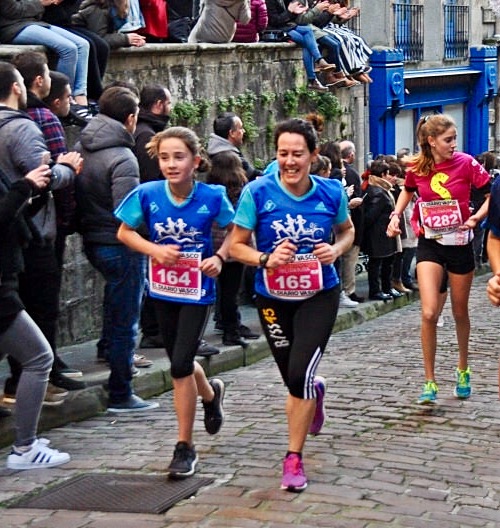
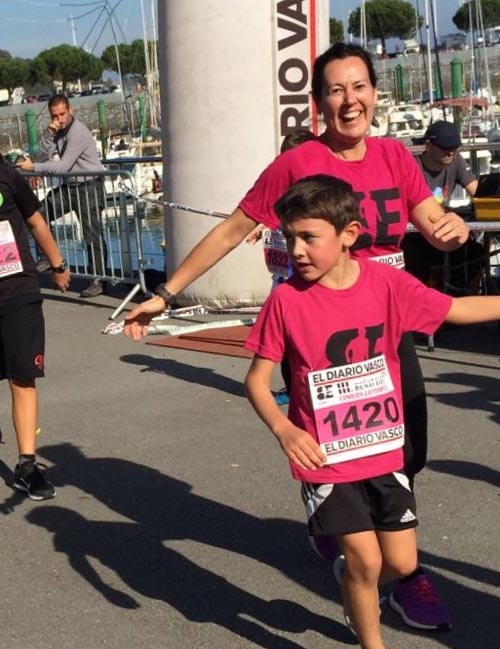
What did you do when you wanted to quit?
The physical changes are important, the inability to maintain the usual physical activity makes you gain kilos and loosen the muscles and even if this is not the most important thing, it does matter. It is important to eat well and exercise, but sometimes motivation fails. To stay psychologically strong in this process, it is not always easy, and even less doing it alone but I'm lucky enough to have friends. I have had the help of people who have been cooking what I liked and could accept, that have accompanied me on long walks, that have been making plans that included me, that have lent me books or simply that have been there - in person or not - every time I have needed them.
Our Afghan sister may be only stepping to the starting line, but this is a race she has run many times before, in fact it is in her DNA. Many generations have shown her that for women in Afghanistan, every two steps forward are followed by 1.99 steps backward. She knows this feeling, but she also has the courage from having felt that new and powerful sense of freedom and strength as an athlete.
Aran, what can you tell her about your courage? Where does it come from when you just wanted to curl into a ball and cry?
Although it is hard what has happened to me, I know that I am in the best possible hands. Moreover, the place where I live (Basque Country- Europe) with political, social and economical stability, is not comparable to the situation of women in Afghanistan. But right now, in the final stretch of chemotherapy, I feel positive - although fear will always be there - I have plans to do things: a little trip, go back to playing sports – even though chemotherapy affects the muscles of the heart and those effects will take some time reverse- or to immerse myself and swim in the sea as soon as the picc is removed.
Aran, the crowd will be cheering for you as you push toward the 30 km. mark—the completion of your radiation. But as in every marathon, your toughest race is the last 10 km.... which for you is living the rest of your life with the knowledge that cancer made its way once into your life and wants to darken your thoughts with fear. What kind of courage will it take to banish this monster from your heart and mind?
The radiotherapy will end in mid-November and for a year I will still have to receive intravenous antibodies every 21 days and pill treatment will last for 10 years. There will be reviews and tests periodically but the motivation to return to be well is great. To be strong again, to be able, to be happy, to be… me. To let other things occupy my mind because when this begins it is the last thing you think when you go to bed and the first thing that comes to your mind when you wake up. I want to be overcome all this too because staying alive is important but living – enjoy being alive- is even more so.
I ask these questions for our Afghan friend. If her freedom to run, get an education and live her own life are taken from her, what kind of courage can we give her? What kind of courage can you give our Afghan friend to banish the dark monster of fear?
In life it is difficult to know what awaits you, from day to day things change and some changes are hard to overcome. Some are final, others are not. However, I think it is important to preserve some habits that provide us with joy and well-being even if the conditions are not the best. Even in a situation as difficult as the one she is living in now, I hope she can find a way to maintain that habit. Because physical activity has always helped me to feel better, to be more positive and to hope that things will improve. If she cannot do this, then I suggest she think again and again about the sense of freedom she has felt before from movement, and keep that as a burning hope in her heart.
I also ask these questions for all of us. Thank you Aran!
Kathrine Switzer.
